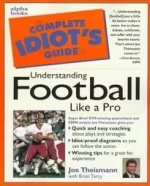In the midst of all of this Mario Cristobal talk, I've noted an interesting issue. In the past, we've discussed how coaching trees, relationships and interactions are critically important. But, their relevance is the key. If a QB coach is exposed to a great offensive coordinator, that's a plus. However, how much does that QB coach absorb? To what degree is that coach given responsibilities that allow him to apply what he is learning or has learned? In the Cristobal case, he's an OL coach with recruiting and organizational responsibilities. What translates?
When people talk about "Mario Cristobal learning under Nick Saban," I immediately wonder what exactly he has learned. Some people who have coached there or been related to the program feel Cristobal has "learned a lot." But, is it relevant? Alabama is not Miami in very, very many ways. Different resources. Different aim. Different style. Different competitive advantages to leverage.
The relevant question the committee or any decision-maker should be asking is fairly straightforward: What did you learn in your time at _______ and how is that applicable here? Then, one can ask "how is this situation different?" What would you do to bridge the gap(s)?
All in all, this goes beyond Mario Cristobal. Most people are sarcastically attacking "fit" comments. As it relates to using "fit" as the excuse for failure, I totally get it. To me, though, completely disregarding "fit" is as flawed as using it as an excuse for failure. For Miami, "fit" just means who's best positioned to leverage our competitive advantages.
The fit we need is a badass, technical coach or someone who brings a plan and package that leverage our strengths. Access to [the very best] talent is our unique competitive advantage. The primary non-technical strength I can see leverage that advantage is from someone who is able to evaluate talent better than others. That's why Butch is someone I support. He isn't the only one, as there are obviously more technical guys who may or may not be available.
The point here is I think it'd be interesting to discuss the concept that: "X" coach who has been exposed to "Y" (awesome coach) isn't necessarily meaningful to what we need.
Dig into the **** details, please.
When people talk about "Mario Cristobal learning under Nick Saban," I immediately wonder what exactly he has learned. Some people who have coached there or been related to the program feel Cristobal has "learned a lot." But, is it relevant? Alabama is not Miami in very, very many ways. Different resources. Different aim. Different style. Different competitive advantages to leverage.
The relevant question the committee or any decision-maker should be asking is fairly straightforward: What did you learn in your time at _______ and how is that applicable here? Then, one can ask "how is this situation different?" What would you do to bridge the gap(s)?
All in all, this goes beyond Mario Cristobal. Most people are sarcastically attacking "fit" comments. As it relates to using "fit" as the excuse for failure, I totally get it. To me, though, completely disregarding "fit" is as flawed as using it as an excuse for failure. For Miami, "fit" just means who's best positioned to leverage our competitive advantages.
The fit we need is a badass, technical coach or someone who brings a plan and package that leverage our strengths. Access to [the very best] talent is our unique competitive advantage. The primary non-technical strength I can see leverage that advantage is from someone who is able to evaluate talent better than others. That's why Butch is someone I support. He isn't the only one, as there are obviously more technical guys who may or may not be available.
The point here is I think it'd be interesting to discuss the concept that: "X" coach who has been exposed to "Y" (awesome coach) isn't necessarily meaningful to what we need.
Dig into the **** details, please.





